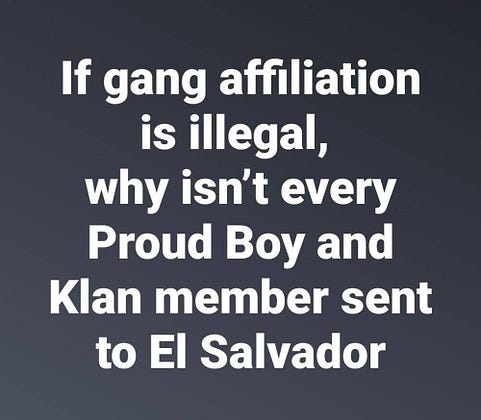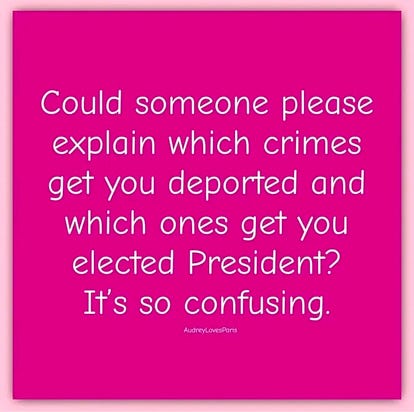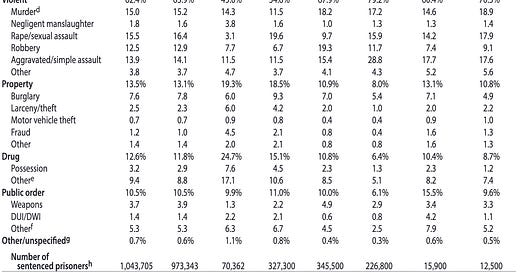Comment
The app for independent voices
You made it, you own it
You always own your intellectual property, mailing list, and subscriber payments. With full editorial control and no gatekeepers, you can do the work you most believe in.


Great discussions
Join the most interesting and insightful discussions.
Grow your publication on Substack
With recommendations, referrals, and a powerful growth network, Substack creators spend less time on marketing and more time on their craft.

You made it, you own it
You always own your intellectual property, mailing list, and subscriber payments. With full editorial control and no gatekeepers, you can do the work you most believe in.

World-class writing
The best stories, ideas, and culture right at your fingertips.

Grow your publication on Substack
With recommendations, referrals, and a powerful growth network, Substack creators spend less time on marketing and more time on their craft.


Grow Your Audience
Marketing isn’t all on your shoulders. More than 50% of all new free subscriptions and 25% of paid subscriptions come from within our network.

There’s a term in psychology called habituation: the way we stop noticing things we see often. A painting on the wall. A familiar view. Even a person’s kindness.
The brain filters the predictable to save energy. But in doing so, it risks filtering out what makes life feel full.
Not everything that becomes familiar should be forgotten.
Sometimes, attention is an act of love.
You made it, you own it
You always own your intellectual property, mailing list, and subscriber payments. With full editorial control and no gatekeepers, you can do the work you most believe in.


My main issue is that I want pot to be lower status. I don't necessarily think pot should be regulated differently than alcohol, but I think pot heads should be viewed much like alcoholics.
Furthermore, we need to stop blaming the War on Drugs for crime. Crime happens because low IQ young men think they can get away with crime. That's it. Drugs lower IQ and inhibition, leading to crime. Most people in on drug charges are in because they pled down to it or it's what the DA could nail them on, but…

The idea that drug laws cause crime doesn't fit the evidence very well.
You have many polities with harsh drug laws and enforcement with little crime, and many polities with loose drug laws and enforcement with lots of crime.
When a drug is legalized, like say marijuana, you don't see any drop-off in crime or arrests. Many people who were getting busted on marijuana charges end up getting busted on something else (often the whole reason they were busted on a drug charge is because its easier to p…

You sound like you're talking through your hat.
I've recently been reading literature on gangs and crime going back to the 19th century, through the early 20th century, the Alcohol Prohibition era, the mid-20th century, late 20th century, and up to today. The role of gangs in American crime- and their power, their financial influence- surged during Alcohol Prohibition, and then in the 1980s, with the street retail trade in crack cocaine.
In particular, there' no comparison between the numbers of …
Many drugs have been made either outright legal or de facto legal (you can do business un-harassed in many open air drug markets today, and people wander the streets obviously high and nobody does anything). Yet gangs persist, in fact they are more common in those districts with lax laws and enforcement.
By contrast Singapore puts people to death for carrying too much pot and its got no crime at all.
An interesting thing with prohibition is it didn't spring into existence in 1920. Most of New England and NY and the Upper Midwest banned alcohol in the 1850s (it was repealed during the Civil War to raise money for the war effort).
Throughout the late 1800s and early 1900s many states, counties, and localities passed various prohibition legislation long before prohibition. If you looked at a map of the US in 1905 huge swaths of the country were effectively already under prohibition, but the crime rate was low, and it was lower in the dry areas then the wet areas. Most gangs were in the big cities amongst immigrant communities, that were thoroughly "wet". Gang and criminal activity was on the rise from 1900-1920, before prohibition, and mostly in the wet areas. The murder rate increased by a factor of 600% from 1900-1920, and only 66% or so during prohibition.
I generally think that prohibition was a net negative:
1) It tried to ban a "soft" drug with deep roots in the culture
2) The ban itself was harsher then many of its supporters expected (most people thought prohibition would ban alcohol content above 3.0%, light beer level, and that it was mainly supposed to prevent binge drinking of hard liquor).
3) The enforcement was basically non-existent. There was no plan for enforcement and few resources applied to it. Local governments, especially those in the cities where people voted wet and didn't want prohibition anyway, did basically nothing. The federal response was more or less stillborn from the start for a wide variety of reasons you can read about.
4) There was a rise in crime associated with prohibition, but there was a bigger rise in crime before prohibition. In a way the prohibition era is just a continuation of the trends of immigration (both from Europe and blacks from the south) and urbanization which you would expect to increase crime rates. Before prohibition Sicilian mobsters were finding other ways to commit crime. And places with prohibition but without Sicilian mobsters seemed to go along peacefully enough.
In short, while I wouldn't endorse prohibition, I don't really consider the be all explanation for crime trends in America at the time, and one quick fix to solve it all. Nor do I think that meth or crack being illegal is the primary driver of crime today.















































